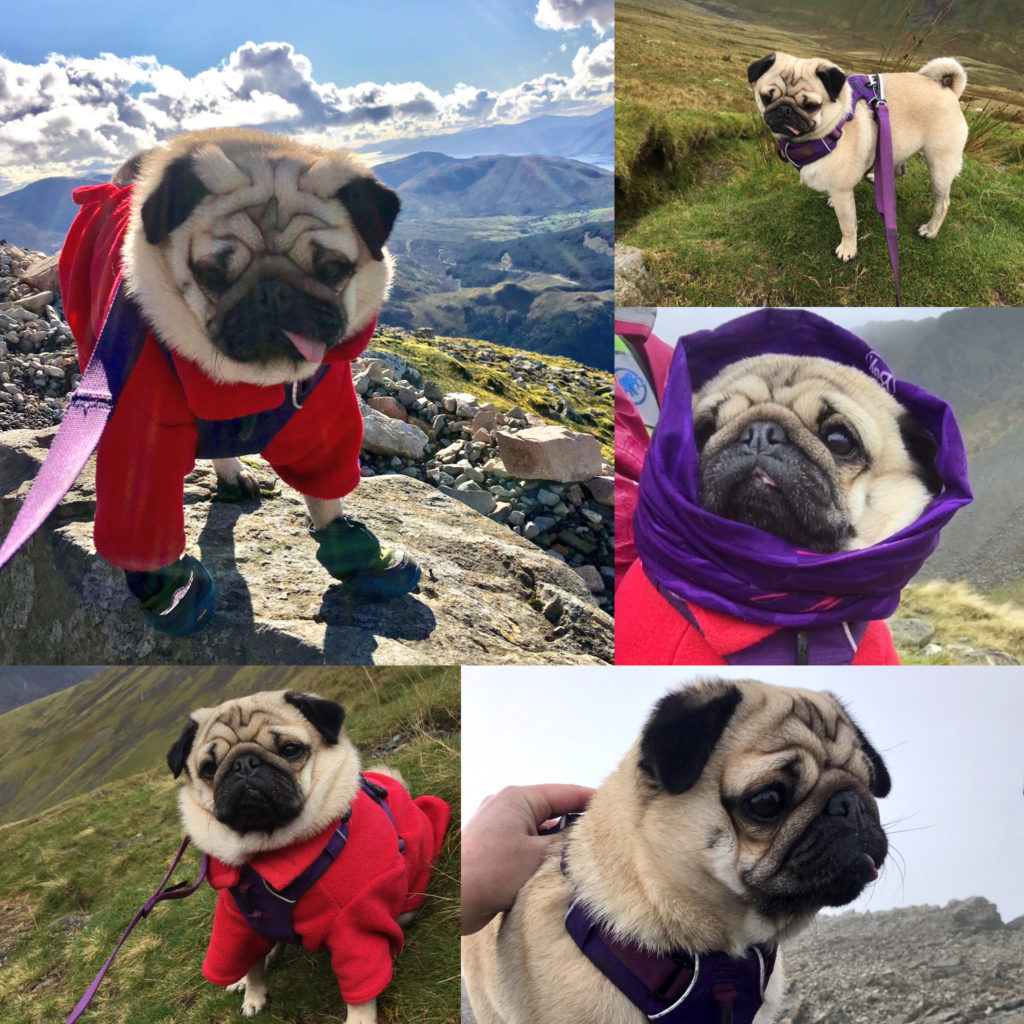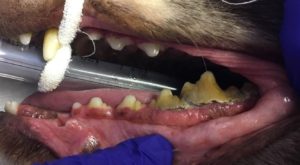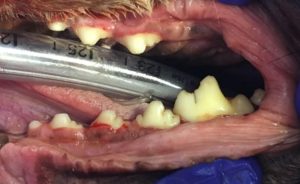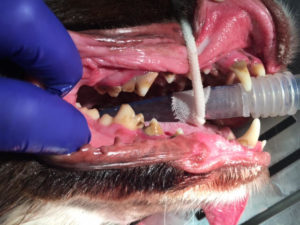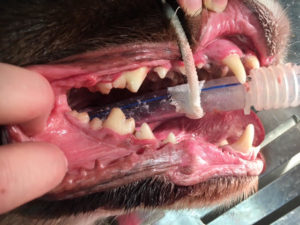Summer is well under way (despite the rainy week we have just had!) so we wanted to remind you of the potential hazards to avoid for your pet.
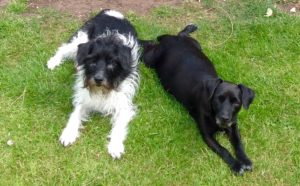 Hots days! Although long walks in the sun are lovely it is really important to pick sensible times to take your dog for a walk; during the really hot weather it is best to choose first thing in the morning or late evening. During the day, keeping your dog in a cool shaded area is best. However, if they insist on sunbathing and getting too warm then wetting their coat and putting a fan on is one of the best ways to cool your pet down.
Hots days! Although long walks in the sun are lovely it is really important to pick sensible times to take your dog for a walk; during the really hot weather it is best to choose first thing in the morning or late evening. During the day, keeping your dog in a cool shaded area is best. However, if they insist on sunbathing and getting too warm then wetting their coat and putting a fan on is one of the best ways to cool your pet down.
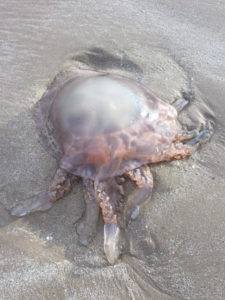 Days out! One of the popular destinations of course is the beach! However, please keep and eye out and be vigilant for washed up Jelly fish as even these can sting! Signs following ingestion can range from gastrointestinal upset to a very high temperature and breathing issues. Another potential risk is the ingestion of excessive sea water; the high levels of salt can in fact increase sodium levels in the blood resulting in gastrointestinal upset or in severe cases, neurological signs.
Days out! One of the popular destinations of course is the beach! However, please keep and eye out and be vigilant for washed up Jelly fish as even these can sting! Signs following ingestion can range from gastrointestinal upset to a very high temperature and breathing issues. Another potential risk is the ingestion of excessive sea water; the high levels of salt can in fact increase sodium levels in the blood resulting in gastrointestinal upset or in severe cases, neurological signs.
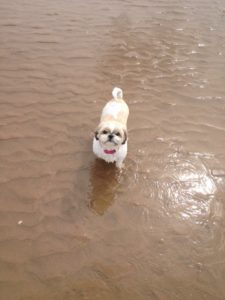
Swimming! With the nice weather comes the inclination to swim! However, at this time of year some lakes and ponds can contain blue-green algae. Keep an eye out for this in the water itself but also look for warning signs around the area you are walking. If you see a sign it is probably safest to keep your dog on it’s lead. Signs of blue-green algae toxicity can vary-some varieties cause liver damage whilst others can affect the brain.
Creepy Crawlies! Unfortunately, with the sunshine come insects that sting! Wasp and bee stings are often painful and cause inflammation and swelling. Our main concern is when the sting is located in a area which may then affect the breathing. Some animals can then also have an allergic reaction to the sting which can results in systemic effects such as collapse. The UK is also home to one type of venomous snake, the Adder. Adder’s are not aggressive in nature and are a protected species however they will bite when provoked. Their bite can result in rapid swelling and collapse and although uncommonly seen they are worth knowing about!
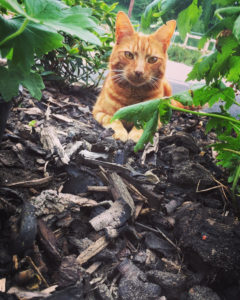 Gardening! When the weather picks up a lot of us get our gardening gloves on! It is important to ensure proper usage and storage of all gardening products as many of these substances can be toxic when ingested or in some cases walked over; see the Veterinary Poisons Information Service (VPIS) information sheet on Pesticides and garden products. The use of certain slug killers can also be dangerous, these are the ones containing Metaldehyde. Ingestion of this substance can lead to convulsions and coma. Others containing ferric phosphate have the potential to cause iron poisoning and gastrointestinal upset.
Gardening! When the weather picks up a lot of us get our gardening gloves on! It is important to ensure proper usage and storage of all gardening products as many of these substances can be toxic when ingested or in some cases walked over; see the Veterinary Poisons Information Service (VPIS) information sheet on Pesticides and garden products. The use of certain slug killers can also be dangerous, these are the ones containing Metaldehyde. Ingestion of this substance can lead to convulsions and coma. Others containing ferric phosphate have the potential to cause iron poisoning and gastrointestinal upset.
BBQs and yummy food! We all love an easy fix to getting our BBQ going but ensure BBQ lighter fluid is kept out of reach of your pets. It contains a hydrocarbon fuel which is very irritant to the skin, eyes and gastrointestinal tract. Contact can result in ulceration, inflammation and burns. Food is also more likely to go mouldy in warm weather so ensure waste is safely disposed of; mouldy food stuff can contain toxic spores resulting in a vomiting, tremors and a high temperature.
The Veterinary Poisons Information Service (VPIS) has a handy leaflet for you to read too! If you think your pet has come into contact with any of the above hazards then please phone us on 01606 880890.

